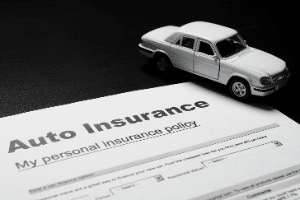
Accidents happen and sometimes drivers have no option but to file a claim with their own insurance company. A no-fault accident or an accident with an underinsured or uninsured driver may make a claim necessary. As a reliable driver and a customer that always pays premiums on time, you may think the insurer will pay quickly, but that is not always the case.
Sometimes insurance companies delay or deny legitimate claims from their clients. The problems could relate to paperwork errors or company mismanagement. It could also take place when the insurance company disagrees about what they owe you. As a driver with coverage and a real claim, follow through and insist on payment.
Know Your Rights
A full-coverage plan covers any repairs and accident-related costs like property damage and towing services. Uninsured and underinsured driver coverage is mandatory in Maryland. It compensates policyholders for the bodily injuries of drivers and passengers and covers damage amounts that exceed the collision coverage maximum.
Uninsured driver coverage is only available when the other driver was at fault for the accident. The maximum amount of compensation the policy pays to the client depends on the policy you chose. Some people only pay for the minimum amount required by law and others wisely choose higher maximums for more protection. The policy will list the coverage amount.
Another protection for Maryland drivers is a diminished value claim. Vehicles damaged in an accident lose some value even after all repairs take place. The difference between the values before and after accidents is the diminished value. Maryland is one state that allows drivers to claim this loss with their insurance company if they were not at-fault for the accident.
Demand Honest Coverage
The insurance company should honor its agreement and pay the full amount you deserve. Review your policy, know the limits, and keep all repair estimates and vehicle valuations for reference. If the company will not cover the diminished value of your car or refuse to pay for the costs of the accident as your policy states, consider the possibility of a lawsuit and an excellent trial lawyer.
Customers treated unfairly by their insurer can either file a bad faith tort claim for the contract violation or a breach of contract lawsuit. A breach of contract is when someone does not meet their obligations as explained in a contract like an insurance policy. A tort claim is a civil action when someone experiences harm because of the actions of the other party.
Do not immediately threaten a lawsuit because it could slow down or stop the claim process unnecessarily. If the insurer stops working on the case or offers to make a partial payment, contact a lawyer. You do not want to make the horrible mistake of settling for a smaller sum than what you deserve or allow the process to drag out unnecessarily.
Plan for Lawsuits
Seek insurance coverage from another company once you sue.
You can continue to work with the claims agent after you sue, but discuss with your attorney how to handle communication with the company. The lawyer may want to review any documents sent by the insurer or may ask you to refrain from phone conversations or interviews with the insurance company or their representatives.
Drivers cannot always plan for every potential accident scenario. Insurance policies exist to make certain that people have financial protection for unexpected events. An insurer that refuses to abide by a contract they hold with their customer needs accountability. At The Jaklitsch Law Group, we will help you get your compensation. Contact us today.
